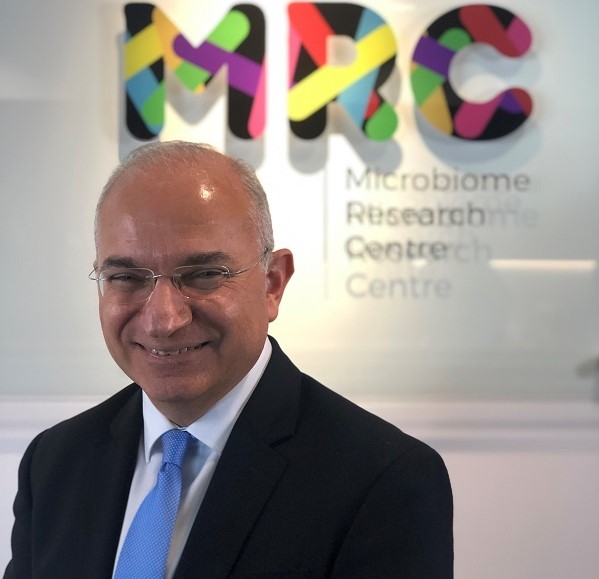Healthy gut, healthy immune system: how our microbiome helps protect us from disease
Our immune system defends us from invading germs, but – somewhat paradoxically – it’s the trillions of microorganisms living in our gut that keep it operating at its best.
Sometimes, these colonies, collectively known as the gut microbiome, are thrown out of kilter, with ‘good’ microbes overrun by the ‘bad’. Mounting evidence suggests this imbalance can turn the immune system against the host and trigger autoimmune diseases.
To treat – or even cure – such conditions, researchers at UNSW’s Microbiome Research Centre (MRC) are exploring how the gut microbiome’s make-up affects immune responses and changes with disease progression.
The lion’s share of our immune system – around two-thirds of all immune cells – is concentrated in digestive system tissue. It’s separated from the gut microbiome by only a layer of epithelial cells lining the inside of the intestinal tract.
This proximity is no coincidence; the gut microbiome’s primary role is to educate our immune system about our environment, says consultant gastroenterologist and UNSW Professor of Medicine Emad El-Omar.

It does this by breaking swallowed pathogens into fragments or antigens, and presents these antigens through the epithelial layer to immune cells. The immune system then ‘learns’ to recognise the pathogen and can quickly mount a defence, should infection later occur.
It’s a delicate balancing act, though: the body must tolerate throngs of beneficial resident microbes while training to identify their nasty counterparts, El-Omar says: “They go hand in hand – everything is designed so there’s a measured response.”
Should this harmonious relationship break down – and a harmful species ends up dominating the microbiome – large amounts of toxic metabolites can leak through the epithelial layer, potentially provoking the immune machinery into generating auto-antibodies.
“As sophisticated as it is, the immune system can have misunderstandings,” El-Omar says.
“Many diseases like inflammatory bowel disease, rheumatoid arthritis and neurodegenerative disorders such as Alzheimer’s disease have those moments of misunderstanding, overreaction and then destruction of self.
“This is the essence of immunological disease.”
Restore microbiome, restore health
El-Omar and his MRC colleagues are exploring how microbiome restoration may one day be part of standard treatment in these and other immune-related diseases. For instance, inflammatory bowel disease, or IBD, refers to a swag of painful, often debilitating conditions involving chronic inflammation of the digestive tract.
More than 60,000 Australians live with an IBD, but not all respond to medication. For instance, the drug infliximab works for only a quarter of patients – and even then, some people stop responding after a year or two.
No-one knows exactly why, but changes in the microbiome may be responsible. To find out, researchers at the MRC, led by Professor Georgina Hold, are running a statewide collaborative study called the Australian IBD Microbiome study to track, over 2 years, medication efficacy and microbiomes of people living with IBD.
The MRC has also partnered with ANSTO (Australia’s Nuclear Science and Technology Organisation) to track chronic brain inflammation in rodents with Alzheimer’s disease.
“ANSTO’s imaging will let us track dementia development in these animal models almost in real-time,” El-Omar says. “We’ll image them before they develop the disease, so we’ll have the baseline, and then we’ll manipulate their microbiome and follow them in meticulous detail.”
Other MRC studies currently getting off the ground will examine the microbiome in rheumatoid arthritis, and a bleeding disorder called immune thrombocytopenic purpura.
All these projects operate on the same principle: to find out the actions of the microbiome in disease, ascertain what a patient needs, then deliver personalised medicine.
“And that’s the beauty of the science: you look at one model, and it gives you a clue towards something else,” El-Omar says.
“Having the MRC allows you that luxury of seeing several different disease models and the common themes, so you can progress a lot faster.”
By Bel Smith
Updated 2 months ago